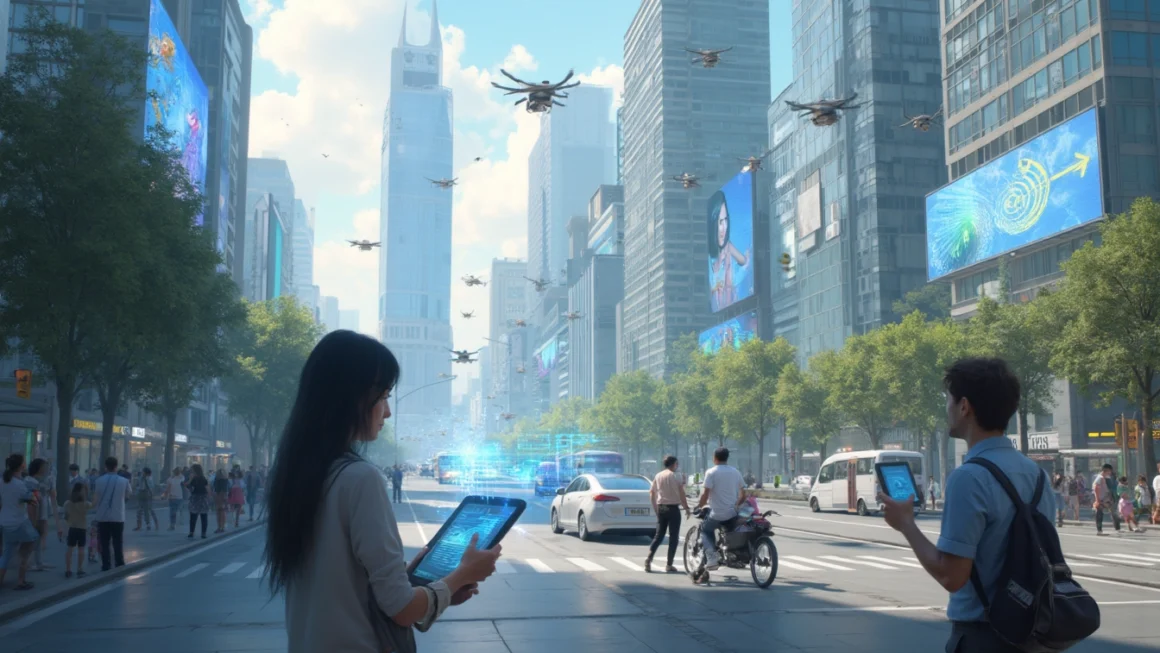Introduction to AI and Its Impact on Society
Table of Contents
Artificial Intelligence (AI) has rapidly become a pivotal force in modern society, influencing various sectors and offering new potentials for both businesses and individuals. While some view AI as a catalyst for innovation and efficiency, others express concerns about its long-term implications. What roles does AI play today, and how does it shape the future of human interaction and economic development?
The Role of AI in Technology Advancements
AI is revolutionizing technology by enhancing how humans interact with machines, creating more robust systems that can process and analyze data far beyond human capabilities. Some of the key areas where AI is making significant strides include:
- Automation: AI allows for the automation of routine tasks, which increases efficiency and reduces the potential for human error.
- Data Analysis: Advanced algorithms process vast amounts of data, providing actionable insights that drive decision-making in industries like finance and healthcare.
- Natural Language Processing (NLP): With AI, machines better understand human language, facilitating more meaningful interactions between people and technology.
AI and Economic Growth
The economic landscape is increasingly influenced by AI as it offers businesses new ways to optimize operations and customer engagement. Companies leveraging AI can achieve:
- Increased productivity through automated processes.
- Enhanced customer experiences with personalized services.
- Innovation in product and service offerings.
Concerns Surrounding AI Implementation
Despite its many benefits, AI’s integration is not without challenges. The technology presents ethical and practical concerns, such as:
- Job Displacement: As AI continues to automate tasks, there is growing concern about the potential loss of jobs and the need for workforce adaptation.
- Bias and Fairness: AI systems can inadvertently perpetuate biases from the data they are trained on, leading to unfair outcomes.
- Privacy Issues: The collection and processing of personal data by AI systems raise significant privacy concerns, necessitating robust data protection measures.
Ethical Considerations
Developing ethical AI systems requires careful consideration of the values and outcomes they are designed to promote. Stakeholders must ensure that these technologies are transparent, accountable, and aligned with societal values.
The Future of AI in Society
As AI technology continues to evolve, its impact on society is expected to grow even further. Key future areas of development include:
- AI-assisted healthcare, offering more precise diagnostics and personalized treatment plans.
- Autonomous vehicles, which promise to revolutionize transportation.
- Smart cities that use AI to optimize infrastructure and improve quality of life.
It is essential for policymakers, businesses, and individuals to collaborate on harnessing AI’s benefits while addressing its challenges.
Conclusion
AI is undeniably reshaping our world, presenting opportunities and challenges that require thoughtful engagement from all sectors of society. Balancing innovation with ethical considerations will ensure that AI serves as a tool for progress, benefitting humanity as a whole. For further understanding of technology trends and their societal impacts, explore expert insights available online.
For more insights into the intersection of technology and society, consider exploring personal professional portfolios that showcase diverse applications of these innovations across industries.
Visit a software developer’s personal portfolio for additional insights.




